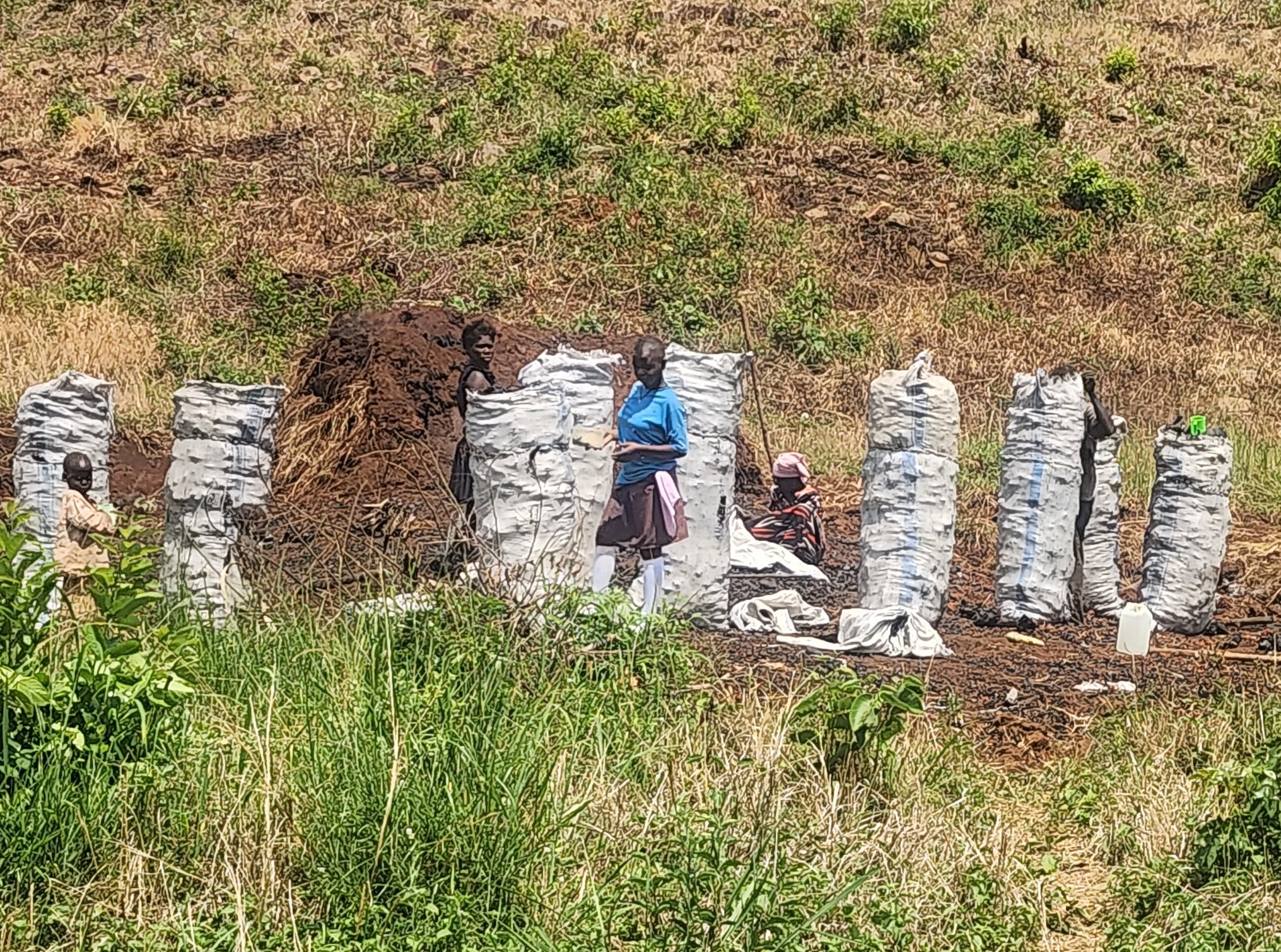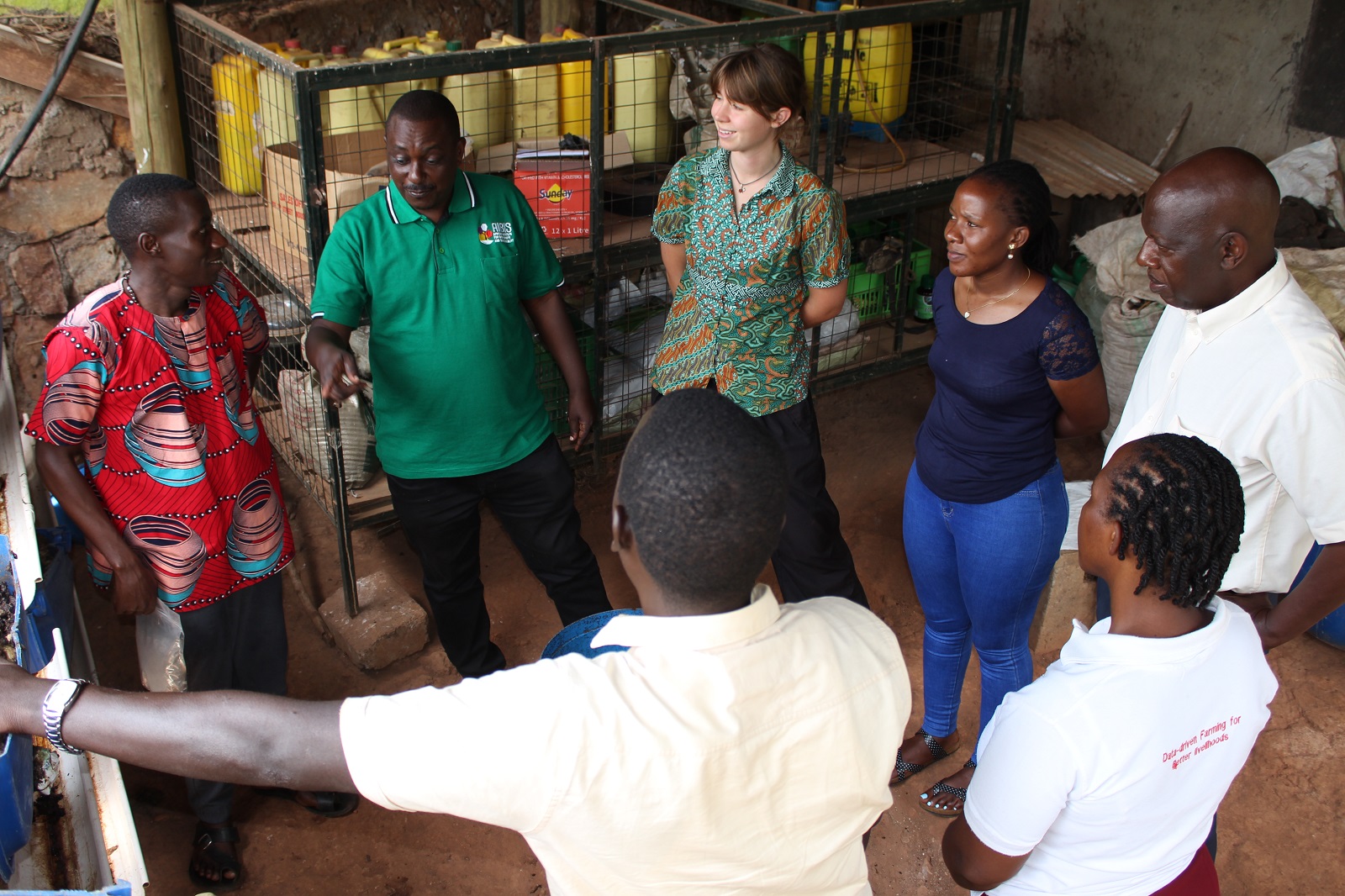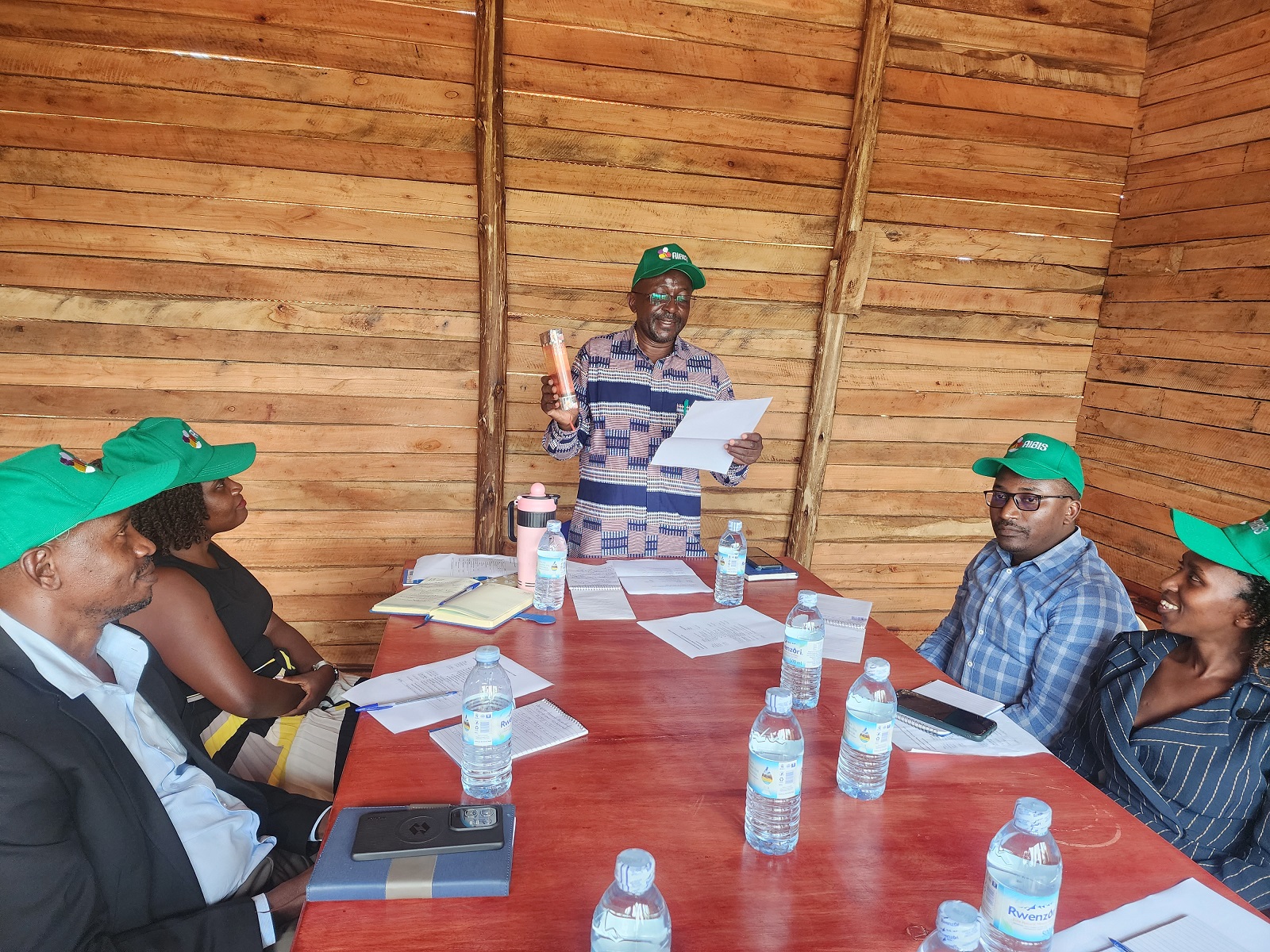Uganda must stop reliance on wood fuel to curb deforestation.
By Vera de Vries,
Up to 85% of all households in Uganda use charcoal or firewood (biomass) fuel for cooking their food. This method of cooking leads to deforestation. While it is true that there are tree planting initiatives by the Government, civil society organisations (CSOs) and private individuals, these initiatives do not match the demand for firewood and charcoal that are daily used in both rural and urban areas. According to the Global Forest Watch, Uganda lost 14% of its tree cover from 2001 to 2023 and according to the Uganda Bureau of Statistics 2020 survey report, 57% of all households in urban areas use charcoal for cooking. Therefore, Uganda needs to prioritise energy transition from reliance on biomass to using cleaner sources of energy for cooking to curb the alarming rate of deforestation. Uganda’s funding partners such as the World Bank should push for this energy transition to be handled as a matter of urgency.
The environmental consequences of charcoal and firewood use are big, leading to deforestation and habitat loss, where ecosystems are destroyed resulting in biodiversity loss. Burning these biofuels leads to greenhouses gasses contributing to the global warming, which accelerates climate change consequences. Additionally, land degradation affects the soils by enhancing soil erosion and desertification resulting in instabilities in food supplies.
Recently, the Ugandan Government announced a ban on charcoal burning in Northern Uganda and the Minister of Energy and Mineral Development is talking about plans to ban sale and use of charcoal in urban areas. While this would be a good development towards curbing environmental degradation, it has got many challenges associated with it. How can one for example expect citizens who are used to this way of cooking to adapt when the alternatives are not readily available and expensive? In 2022, the Ugandan government launched Free LPG Starter Kits to distribute one million starter kits to households nationwide to promote the transition from biomass fuels (firewood and charcoal) to cleaner energy (gas). Whereas this would be a good initiative, it is expensive and promotes use of fossil fuel which is dirty energy itself. The proposed alternatives should be affordable and readily available to everyone, otherwise, Ugandans will always go back to destroying forests and woodlands in search of affordable wood fuel.
The energy transition
On 5th December 2023, the Government of Uganda launched Uganda’s Energy Transition Plan (ETP) at COP28 in Dubai. It is an ambitious plan aimed at achieving carbon neutrality by 2050 and ensuring universal access to electricity by 2030. Though many environmentalists and conservationists were excited by this plan, many were left wondering as to whether its targets were realistic. According to the Ministry of Finance, planning and Economic Development, by 2024, accessibility to the national electricity grid was at 20% only while only 15% of the population had access to clean cooking technologies. This therefore makes one wonder whether in the remaining few years to 2030, all Ugandans will be having access to reliable electricity.
In my opinion the Ugandan government should look for a way of slashing electricity tariffs by more than 50% if forests in the countryside are to be saved. The 20% of the population that have access to the national electricity grid are mostly those who live in urban areas. Ironically, it is the same people who are using charcoal for cooking because they cannot afford to use electricity for cooking. Charcoal burning will be controlled effectively if the demand for it in urban areas drops.
It is also interesting to note that Uganda is determined to be an oil producing country at least by 2027, with the longest heated crude oil pipeline in the world (EACOP Construction Review, 2025). According to the ETP Uganda expects to use the oil and gas revenue to boost clean cooking technologies but this is problematic because oil and gas are fossil fuels that are considered to be part of dirty energy. While the Global North countries (developed countries) are trying to phase out fossil fuels and transition towards renewable energy like solar, wind and hydro power, Uganda is on the other hand is eyeing fossil fuel as catalyst for its energy transition. This is paradoxical indeed.
Investing so much money into fossil fuels can lead to negative consequences, creating a lock in effect where investing in oil and gas infrastructure holds back the Uganda renewable energy transition, creating dependency on a source of energy that is not sustainable in the long run. Uganda should skip one step in the energy transition, stepping over the fossil fuels straight to renewable energy. The counties in Global North started with firewood, coal and charcoal as well and then transitioned into fossil fuel extraction decades ago but are now trying to make the switch to renewable energy which is very complicated for them because many people and industries are dependent on fossil fuels. This is why Uganda should invest in direct sustainable energy which will lead to thriving ecosystems, soils, good health for the population and therefore sustainable development.
Alternatives
There are different of ways of producing energy in a sustainable way. Uganda has high solar radiation throughout the year and enough wind, and therefore cooking solutions powered by solar or wind energy would be fitting. Investing in this area is worth it.
According to the UNEPCC some costs can be saved when one invests in solar power considering what is spent on charcoal or gas in the long run. Women in different parts of Uganda have started investing in solar cooking with positive results.
The Ugandan government should work on enabling every household to have its own energy source to create energy independence and avoid national energy problems. This would also solve the challenge Uganda currently faces of connecting 76 % of its population that live in rural areas on the national grid.
The Ugandan government should subsidise the cost of electricity to reduce the number of people living in urban areas using charcoal for cooking. The government should further subsidise the cost of solar equipment while giving low or no interest loans to citizens to acquire them.
The Global North countries have a responsibility to contribute to the energy transition of the Global South Countries because of the colonial plunder and the current greenhouse gas emissions. The global funding bodies such as the World Bank and the International Monetary Fund should also make this cause one of their priority areas.
Conclusion
Deforestation in Uganda cannot be stopped without addressing the way people cook. Charcoal and firewood are still the main sources of household energy, leading to deforestation which causes environmental degradation, health issues, and food insecurity. Reforestation initiatives are not enough if biomass fuel keeps getting used. This is the reason why a sustainable energy transition is crucial. By investing in renewable energy like solar and wind for cooking, households can access safe and affordable alternatives, forests can recover, and ecosystems can thrive. Development aid should support this transition in a way that empowers local communities rather than creating dependency. Prioritizing Uganda’s energy transition tackles one of the root causes of deforestation and brings also other benefits for the climate, the economy, and people’s lives.
Vera de Vries is a student at the Van Hall Larenstein University of Applied Sciences in the Netherlands and was an Intern at the African Institute For Biodiversity and Sustainability (AIBIS) from August-November 2025.



